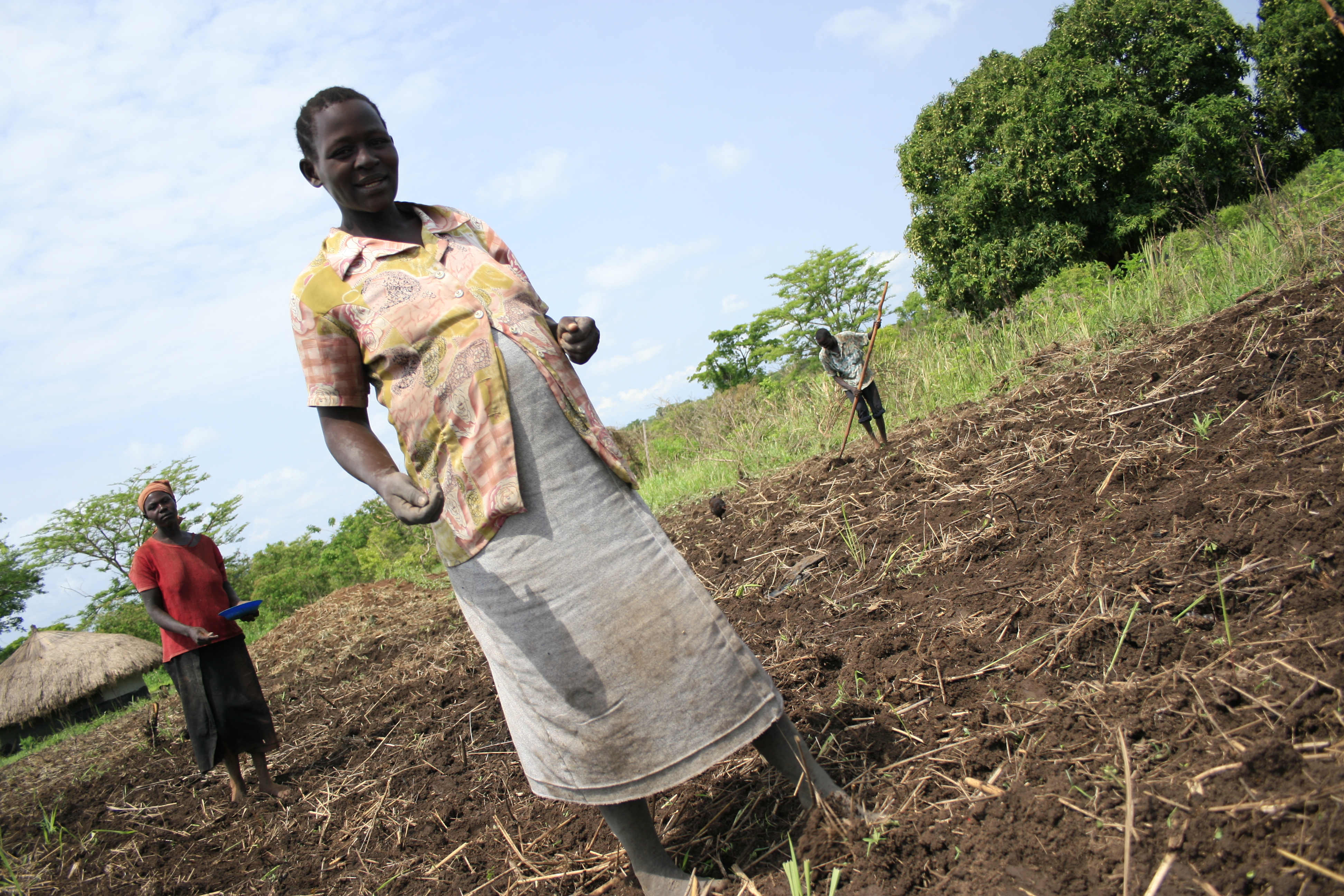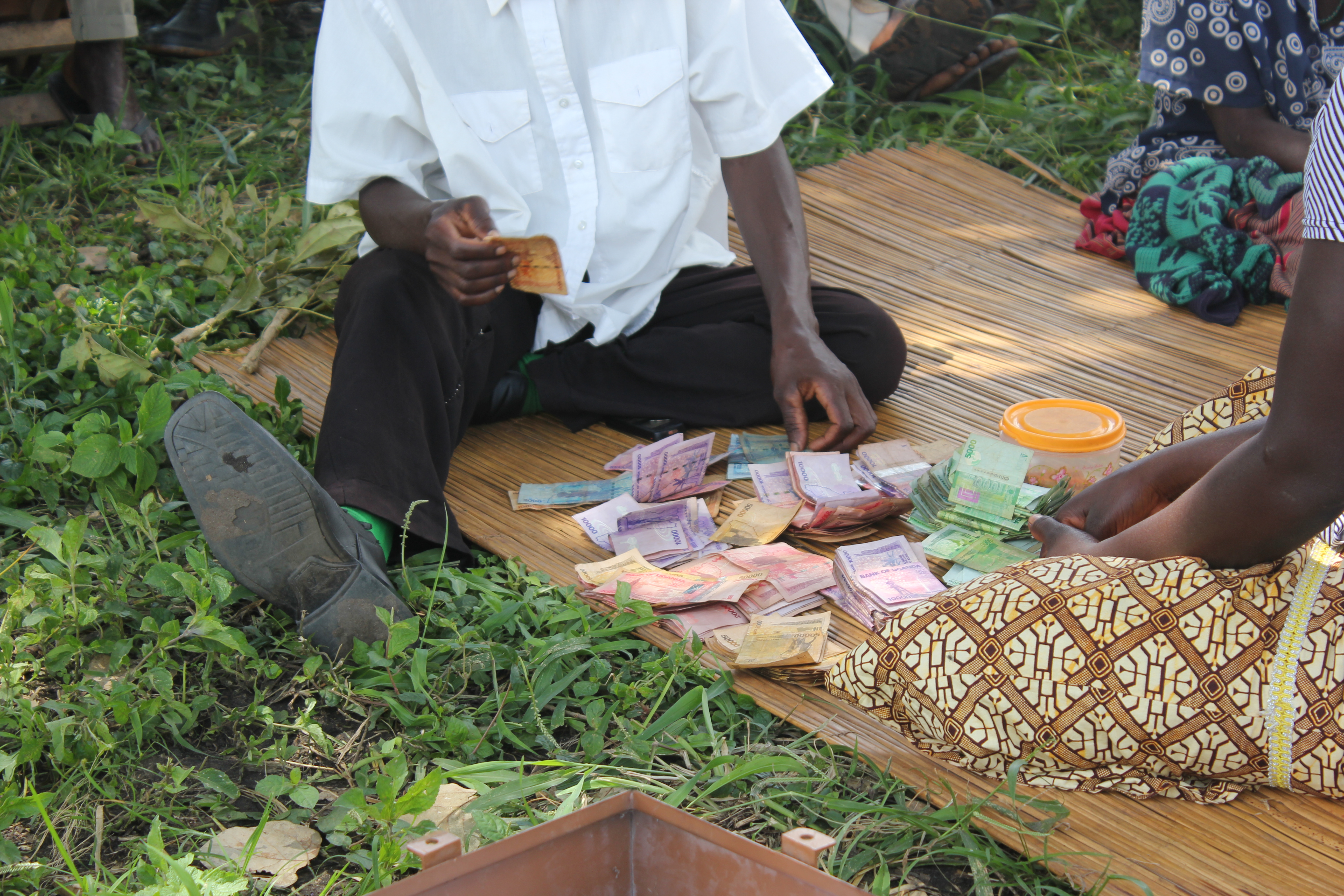Even after graduating over 2,000 members from the Functional Adult Literacy course last month, Invisible Children Uganda’s livelihoods team has not taken much time to rest. Change is in the works as the team recently kicked off planning for the future of our Livelihoods programming and support Lord’s Resistance Army escapees.
We believe that the men, women and children who are escaping from Joseph Kony’s rebel army are some of the most vulnerable people in northern Uganda. For the men and women, many were taken against their will as youth. They grew up in the bush, with no access to educational opportunities and while experiencing a significant amount of trauma and instability. The children born to members of Kony’s army are a particularly important group, as they know no life outside of the bush.

Staff members from Invisible Children Uganda meet with the family of a recent LRA returnee. They explain to the family that they will play an important role in helping their son to plan for his future and own livelihood. A new facet of Invisible Children’s Livelihoods program will hopefully play an integral role as well.
While the exact direction of the project is unclear, we can say that the program will benefit more than just the returnees themselves. We aim to facilitate the savings, lending and economic activities of returnees and the communities where they live. By participating in Village Savings and Loan Associations, not only will the returnees to grow in their understanding of income generation, but it will ease their reintegration back into their home communities as they interact in positive and productive ways right from the start.
While the reintegration process has proven very positive in some cases, it can be challenge for other returnees. As communities are still reeling from decades of LRA atrocities, some members find it difficult to forgive LRA members. While they understand that fighters were abducted against their will, it is difficult to separate this fact with the painful memories of lost loved ones. We aim to improve these relationships by creating positive community groups that better integrate returnees into society back home while empowering communities as a whole.
Ojungu Lameck, Invisible Children’s Livelihoods program assistant recently offered his recommendations for the future of our Livelihoods programs. In addition to expanding to support returnees, the program will continue working with some of our 161 savings groups that have yet to complete their VSLA savings cycles and the FAL curriculum.
In his recommendations, Lameck suggests that local leaders and the community-based facilitators supported by Invisible Children encourage graduates to continue reading and writing. Just because the participants are declared literate does not mean they have learned everything there is to learn. He suggests that returnees and rural communities should remain the program’s target groups as there is a significant amount of demand for savings and literacy skills. Finally, local leaders must work to ensure security in areas where the groups operate so their savings and cashboxes remain safe throughout the savings cycle.


Think people should hear about this?